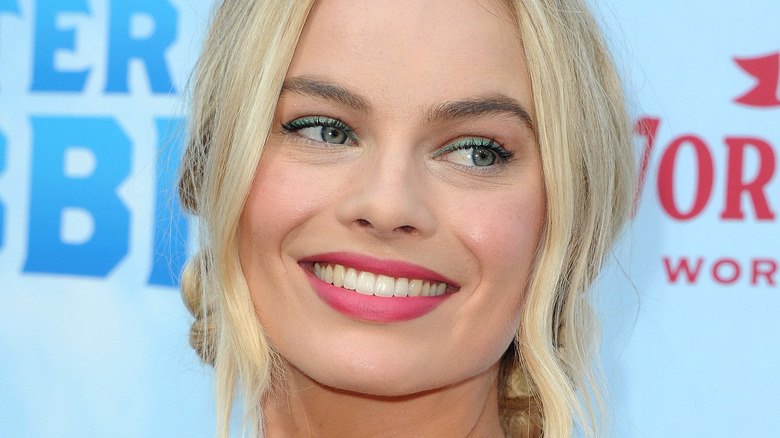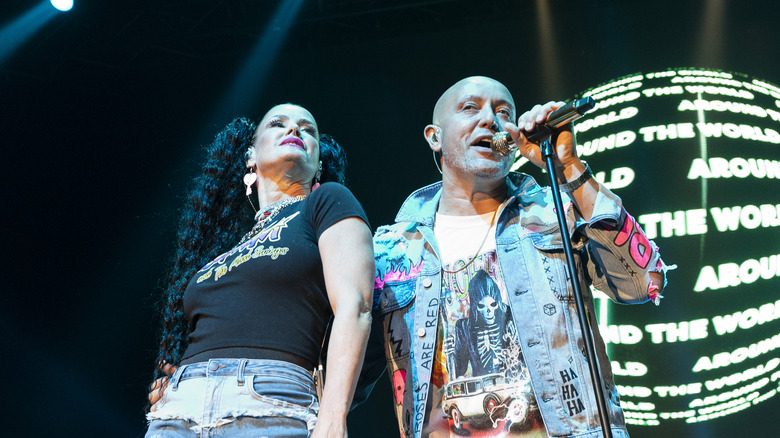Aqua Breaks Their Silence About Barbie Girl's Exclusion From Greta Gerwig's Upcoming Film
Aqua's iconic hit song, "Barbie Girl" has become such a pop cultural force in its own right that many casual observers may mistake it for an official tie-in with the popular Mattel toy from which it borrows its title. However, nothing could be further from the truth. First released in 1997, Mattel in fact sued Aqua for violation of trademark in 2000, claiming "Barbie Girl" had done damage to the Barbie brand. In 2002, the case was decided in the band's favor, which is why the song persists to this day. It has racked up a mind-bending 1.1 billion views on YouTube alone.
Nevertheless, "Barbie Girl" remains inextricably tethered to the Barbie doll brand — exactly as Mattel feared it would — and plenty of people have wondered whether it will appear on the soundtrack for the upcoming "Barbie" film by Greta Gerwig. The film has drawn plenty of buzz as a result of its all-star cast (led by Margot Robbie and Ryan Gosling), leaked set photos, and of course, its celebrated director. But one thing it will not have is "Barbie Girl."
For their part, the band members of Aqua are unfazed by the decision not to include their hit record, as they explained in a new interview.
Barbie Girl will be fine without Greta Gerwig's Barbie, say Aqua
In an interview with Variety marking the 25th anniversary of "Barbie Girl," Aqua bandmates Rene Dif, Lene Nystrøm, and Søren Rasted reflected on the song's creation and history while dishing out some lighthearted barbs (pun very much intended) at the "Barbie" movie's omission of the song. "We should say we turned it down," Rasted quipped. "Ryan Gosling is not good enough!" Ultimately, though, the band is sanguine about having their iconic song passed over for Gerwig's film, since any mention of Barbie tends to drive new attention to the record. Said Nystrøm, "I totally understand why they didn't use it, but it's going to bring us a lot of attention, no matter what."
The band also shared some fun facts about the song's creation. Rasted noted that, since Auto-Tune was not yet available when the song was written (the first version of the popular pitch correction software was created in 1997, the same year "Barbie Girl" was released), she was forced to actually hit the high-pitched voice of the Barbie in the studio. "It made the whole track magical," she recalls, "but it took me a long time to admit it." Additionally, Nystrøm noted that the band was blindsided by a lot of the criticism leveled at them in the wake of the song's popularity, as some interpreted it as a critique of plastic surgery or as having anti-feminist messages. Rasted said, "We really just wanted to make a fun song. We didn't put that much thought into it. The hook just worked really, really well."
A quarter-century after its release, "Barbie Girl" remains relevant. It may not get a needle drop in Gerwig's "Barbie," but it will likely boom from the cars of many a theatergoer as they head to see the film in cinemas this coming July.

